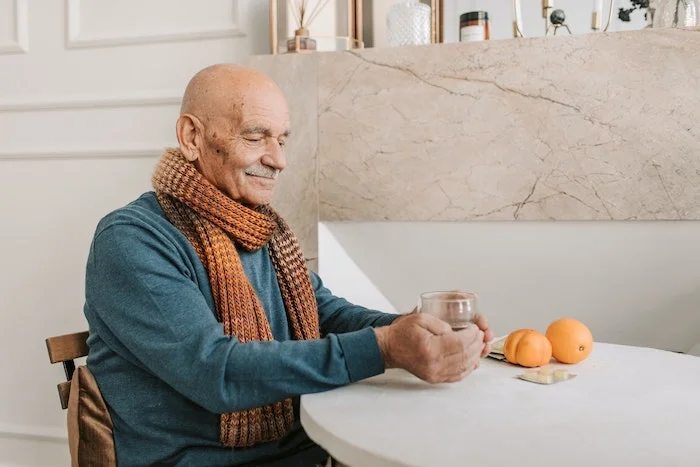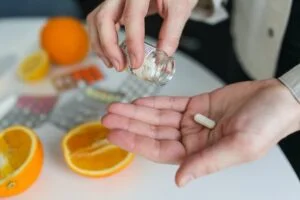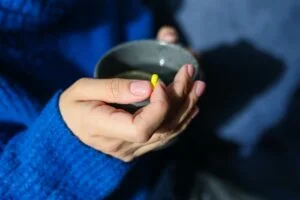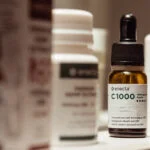Drug and Alcohol Rehab in Telford
This article will discuss drug and alcohol rehab in Telford.
Telford is a town located in Shropshire, England and has an estimated population of 185,600.
According to the latest data collected by Telford and Wrekin council, it was recorded that 929 people use opiates, crack cocaine or both together.
Telford has also seen a 16% rise in treatment for non-opiate drugs, such as cannabis and cocaine.
29% (39,300) of adults were recorded as drinking harmful levels of alcohol.
However, three in four people with alcohol dependency and one in three people with opiate/crack dependency do not access treatment. (1)
For more information about drug and alcohol statistics in Telford, please follow this link.
According to the Telford and Wrekin council, this is due, in part, to people not knowing what treatment is available and how to access it.
For those based in Telford and looking for help with drug and/or alcohol dependency, this article will be of use.
Its purpose is to discuss treatment options in Telford – to highlight what treatment is available, how to access it, and what to expect.
Please call our 24-Hour Helpline: 0800 326 5559
How OK Rehab can help you take the next step?

Are you looking for drug and alcohol rehab in Telford? Are you struggling to know where to turn? Are you afraid to tell people in your life out of fear of judgement?
To answer all of these:
- If you get in touch with OK Rehab, we can guide you towards a treatment plan perfectly suited for you. Beyond the information right here on this landing page, as an organisation, we also have information on drug and alcohol rehab across the country.
- No one at OK Rehab will judge you – if you call our helpline, we’ll be right there to listen whenever you’re ready. In fact, we’re made up of people who’ve also suffered from addiction, so we know exactly what you’re feeling. It can also be good to remember that even admitting that you need help and then reaching out for it is a big step.
You might think that you can deal with this alone or even that you have no other choice but to deal with this alone.
First of all, to be completely honest, addiction is complex to the point where getting better all on your own is entirely unrealistic. There isn’t really a cure for addiction, but with the right treatment, it is absolutely manageable.
In some circumstances, withdrawal symptoms could also make it unpleasant at best and dangerous at worst to attempt.
More detail on that specifically, including a list of withdrawal symptoms, is below. Here we also have a guide to the key signs and symptoms of addiction.
Please call our 24-Hour Helpline: 0800 326 5559
How do I know if I am addicted?

Understanding that you need help is one of the first keys to recovery. However, recent research has found that a portion of people with substance dependency are unaware that addiction has occurred.
The reason for this can be variable. For example, some people are unaware of the signs of addiction.
In addition, many substances impact the brain in negative ways, such as damaging cognition. This, in turn, can lead people to believe that they are not addicted.
Although the signs of addiction can vary from person to person and from substance to substance, there are some general signs worth discussing.
The first of these, and probably the most evident sign of addiction, is withdrawal.
When a person becomes addicted, the brain and body become dependent upon the substance to function properly.
Without the substance, the brain and body will begin to crave it. To obtain a level of equilibrium, the brain and body will then begin to expel harmful toxins – this is known as detoxification, or detox for short.
The detoxification process can lead to withdrawal symptoms, such as nausea, vomiting, shakes, headaches, anxiety, and sleeplessness (this will be discussed in more detail below).
If a person is experiencing withdrawal symptoms, dependency has likely emerged.
In addition to damaged cognition, substance dependency can also lead to a loss of inhibitions and personal care.
It is not uncommon for people to lose interest in hobbies and activities and to stop socialising.
Other signs might include your work being negatively impacted, a change in appearance due to poor hygiene, or a willingness to engage in risk-taking behaviours – using the substance in inappropriate situations or stealing to financially support the habit, for example. (2)
These are just a few of the main signs of addiction. It is always recommended, however, that people speak with their GP – even if only starting to use a substance.
Medical professionals have developed useful tools to determine whether addiction has occurred.
An example of this is the CAGE (Cutting Down, Annoyance by Criticism, Guilty Feeling, Eye-openers) questionnaire.
This yes/no questionnaire explores several important key elements for determining addiction.
Originally developed to determine alcohol addiction, the CAGE questionnaire has, in recent years, been developed for drug addiction too.
The questions for uncovering alcohol addiction are:
- Have you ever felt you should cut down on your drinking?
- Have people annoyed you by criticizing your drinking?
- Have you ever felt bad or guilty about your drinking?
- Have you ever had a drink first thing in the morning to steady your nerves or get rid of a hangover (eye-opener)?
The questions for uncovering drug addiction are:
- Have people annoyed you by criticising your drug use?
- Have you felt bad or guilty about your drug use?
- Have you ever used drugs first thing in the morning to steady your nerves or to get rid of a hangover (eye-opener)?
Please call our 24-Hour Helpline: 0800 326 5559
Do I need treatment?

If any of the following signs apply to you, then the simple answer to the question above is yes:
- If you can’t stop participating in addictive behaviour and/or consuming addictive substances, no matter how much it hurts you or those around you
- If your continued consumption of said substances or said participation in addictive behaviour is hurting you physically or mentally
- If people around you have started to notice a change in your behaviour
- If any of the following physical symptoms apply to you
As we said before, speaking from our experiences across many years, attempting to recover alone doesn’t stick. Early treatment is also the key for a lot of people. Even if you’re only starting to slip now, if you don’t get help, it could get worse. Ironically, by avoiding treatment, you could end up needing more intensive treatment in the long run.
And really, what’s the harm in reaching out, even if you don’t think you have a serious enough problem to require treatment? If you do choose to call our helpline, it might even feel good to chat about everything you’re going through and let out your feelings.
Please call our 24-Hour Helpline: 0800 326 5559
What is an intervention?

Intervention refers to the gathering of family and friends – what medical professionals refer to as Concerned Others (COs) – to convince a loved one that they need to seek help for their substance use.
This usually involves meeting in a natural space, such as a family home, and each CO takes turns to explain how the loved one’s behaviours have negatively impacted them. (3)
Studies have found that interventions are particularly useful when the loved one is unwilling to seek help for their dependency.
Interventions always have the potential to elicit negative emotions that might lead to confrontation.
There are, therefore, some useful things to remember before conducting an intervention.
This includes:
- Choosing carefully who will be involved – make sure only to involve the loved one’s closest family and friends
- Choosing carefully where the intervention will take place – make sure to hold it in a space where the loved one feels safe
- Knowing what to say and how to say it – it is worth writing down what is going to be said and practising saying calmly and empathetically
- Do some research on addition – this help engender understanding and compassion
- Find out what treatment is available, how to access it, and how family and friends can support a loved one through it
- Employ the help of an intervention specialist, such as a psychologist or social worker
Another option that has a high success rate is Community Reinforcement and Family Training (CRAFT).
CRAFT was developed specifically for families that are struggling to get their loved ones to seek help.
Not only does it help families to conduct a successful intervention, but by working alongside a CRAFT professional, families will be trained in such things as:
- Positive communication
- Empathetic listening
- Encouraging positive behaviour changes
- How to stop enabling behaviours
Please call our 24-Hour Helpline: 0800 326 5559
Public vs Private Rehab in Telford

There are many private and public services available in Telford and surrounding areas.
Examples of the latter, include Telford STaRS, Recharge Telford, A Better Tomorrow, and Telford After Care Team (TACT). (4)
Each of these organisations offers a wide range of free services, including:
- Substitute prescribing
- Needle exchange
- Detox
- Group and one-to-one therapy
- Peer support
- Family support
- Help to access treatment
For more information about these organisations and the services that they offer, please follow this link.
Alternatively, there are private treatment options. However, these are often expensive.
On the cheaper side, private rehab, on average, costs between £250 to £500 per day. Luxury rehabs can upwards of £1000 per day.
If residential treatment is a must, but the cost is out of reach, there are a few options available.
The first is to try and seek financial help through the NHS. The NHS, although not having a private facility, does offer funding for people to access private rehab.
This requires an assessment and referral from a key worker, such as a GP, and then an application to the Telford and Wrekin council.
It should be noted, however, that this funding is reserved for people that meet a certain criterion.
This might include, for example, having already detoxed, attending therapy and pre-rehab courses, and showing a willingness to change.
There is also a waiting list, and people can expect to wait between 6 months to a year for funding to become available.
Another option is health insurance. UK-based companies, such as BUBP and Aviva, provide health insurance that covers to cost of private rehab.
This will involve a contract and a monthly – usually between £100 to £200 per month.
Finally, for those in employment, the company/employer may cover the cost of private through employee health insurance.
Please call our 24-Hour Helpline: 0800 326 5559
How long does rehab last in Telford?

There is no specific amount of time that rehab should or should not last.
Its duration will be dependent upon the person’s needs. However, data suggests that, on average, rehab lasts between 28 to 90 days.
Most rehabs will offer a variety of programs, ranging from shorter seven-day treatment programs that just provide detoxto longer treatment programs that can last 90-days plus.
Some of the variables that influence rehab duration include:
- The substance being treated
- How long has the person been using the substance
- The age and gender of the person being treated
- Whether the treatment is residential or outpatient
- How long the detox takes
- The type of therapy provided
Please call our 24-Hour Helpline: 0800 326 5559
Inpatient or outpatient treatment in Telford

There are many different types of treatment. However, the two most common and arguably most prominent, are inpatient and outpatient treatment.
Both offer detox, therapy, relapse prevention, and aftercare but are different in various ways.
The primary difference is that inpatient treatment is residential – that is, people stay at a facility – a private rehab, for example – for the duration of the program.
Outpatient, on the other hand, is not residential. People, instead, attend weekly appointments at a GP, for example.
Inpatient treatment tends to be better suited to people that have severe addiction.
The reason for this is two-fold: one, it removes people from their usual environment, decreasing the chances of using a substance.
Two, people will receive 24/7 medical supervision; this is particularly important for people that are heroin or alcohol dependent, as detoxing from either can be life-threatening.
Therefore, outpatient treatment is better suited for people with less severe addiction.
There is also a financial benefit to outpatient treatment, as it can often be accessed for free via local services (such as those mentioned earlier).
Finally, outpatient treatment is useful if people have other engagements, such as work or childcare. (5)
Please call our 24-Hour Helpline: 0800 326 5559
Rehab for Cannabis, Cocaine, and Heroin in Telford

Upon entering a treatment program, that step is to detox.
As mentioned earlier, this is a process of the body removing the substance. It can lead to withdrawal symptoms which can vary from substance to substance.
Cannabis withdrawal, for example, is mild, with symptoms not needing medical supervision.
Symptoms of cannabis withdrawal include such things as headaches, stress, cravings, restlessness, trouble sleeping, and a lack of appetite.
The speed at which such symptoms occur will depend upon how long the person has been using and how often they use.
In most cases, however, symptoms begin one-to-three days after the person stops using and can last between seven-to-ten days.
Cocaine withdrawal – although having some physical symptoms, such as headaches, fatigue, and restlessness – is usually more psychological.
Symptoms include paranoia, agitation, irritability, mood swings, stress, anxiety, and depression.
Symptoms can occur as quickly as 30 minutes to one hour after the person stops using and can last for up to seven days.
Heroin withdrawal ranges from mild to severe and can be both physical and psychological.
Mild to moderate symptoms include cravings, restlessness, sweats, fatigue, nausea, vomiting, and diarrhoea.
Severe symptoms include hypertension, hallucinations, breathing issues, and insomnia
On average, symptoms will begin six hours after the person stops using and can last between seven-to-ten days.
People will likely undergo a medical detox for heroin. This means that they will be given an opioid, such as Methadone, to help counter any potentially life-threatening withdrawal symptoms. (6)
Please call our 24-Hour Helpline: 0800 326 5559
Rehab for Alcoholism in Wales

Alcohol withdrawal – medically known as Alcohol Withdrawal Syndrome – ranges from mild to severe.
Mild to moderate symptoms include sweats, shakes, fatigue, nausea, vomiting, diarrhoea, and sleeplessness.
Such symptoms will begin six-to-twelve hours after the person stops drinking.
Severe symptoms include high blood pressure, delirium, breathing issues, and seizures.
Severe symptoms usually begin 24 to 48 hours after the person stops drinking.
Most symptoms begin to reduce after several days but can last for up to ten days.
To help counter AWS symptoms, people will be given a benzodiazepine such as Librium.
This will help with anxiety, restlessness, and a lack of appetite. (7)
Please call our 24-Hour Helpline: 0800 326 5559
Detoxing and withdrawal symptoms

One kind of treatment which is very important, but which we haven’t mentioned yet, is detoxing.
In this process, substances and/or alcohol will slowly be removed and replaced with specifically prescribed medication. This removal of whatever you’re addicted to is a highly significant first step towards recovery.
But you might also remember our warning from earlier.
Depending on both what you’re addicted to and the severity of your addiction, withdrawal symptoms can vary by quite a bit. In accordance with this, this is an area where you should research your specific addiction.
But to generalise, some of the most common and well-known withdrawal symptoms are:
- Tremors
- Seizures
- Changes in mood
- Diarrhoea
- Muscle pain
- A runny nose
- Vomiting
- Sweating
- Strokes
- Heart attacks (heart problems can also eventually be a side effect of long-term drug use)
- Insomnia/trouble sleeping
- Hallucinations
The medication you’re given during a detox should prevent the worst of these. But it’s very important that you’re aware of what they are before you start treatment, so you can have a full view of the process.
Please call our 24-Hour Helpline: 0800 326 5559
Dual Diagnosis – What is it, and why is it Important?

Dual diagnosis refers to a co-occurring disorder of addiction and mental health issues.
Dual diagnosis is important as it will influence the type of treatment that a person needs, such as medication and/or therapy.
Unfortunately, poor mental health is common among those with addiction. This is because substances such as cannabis, cocaine, heroin, and alcohol, can damage the brain and lead to underlying mental health issues coming to the fore.
Similarly, studies have found that people with anxiety, depression, or personality disorder, for example, will often use substances to help alleviate such mental health issues.
This significantly increases the chances of that person developing an addiction. (8)
Please call our 24-Hour Helpline: 0800 326 5559
What therapy will I receive during Rehab in Telford?

There is a wide range of therapies available during rehab. However, different rehabs will offer therapies.
Common examples include Cognitive Behavioural Therapy (CBT), Brief Interventions, Family Therapy, and Group Therapy.
Of these, CBT is probably one of the most common. This is because it has a high success rate and focuses on an important aspect of addiction: thoughts and behaviours.
On the surface, the theory behind CBT is simple – thoughts lead to behaviours; therefore, by understanding thought processes people can change behaviour patterns.
For example, before using a substance, a person might have a series of negative thoughts. If these can be understood, prevented, or changed, this should be reflected in positive behaviours.
Brief interventions are also common during treatment. People will have short conversations with medical professionals to help them think about and understand their addiction.
People are likely to be asked a series of questions about their relationship with the substance they are dependent on, such as ‘how often do you use and how long have you been using for?’
The goal is to get people to understand the nature of the addiction with the hope that this will lead to behaviour changes.
Because addiction can often lead to damaged relationships, most rehabs will offer family therapy.
Here, people will sit with their loved ones and discuss how addiction had negatively impacted the relationship.
A medical professional will aim to use such conversations to help people reconcile with their loved ones.
Group therapy is also very common. This involves people meeting with peers to discuss experiences, struggles, and issues relating to addiction.
This is particularly useful for encouraging accountability and preventing feelings of isolation. (9)
Please call our 24-Hour Helpline: 0800 326 5559
Relapse prevention and aftercare in Telford

For many people, finishing rehab is only half the battle. The other half involves maintaining sobriety when entering an old environment that has a lot of potential triggers.
Medical professionals are aware of this struggle and will help people to develop a relapse prevention plan.
This involves understanding a person’s potential triggers, such as relationships, financial situations, or social activities.
In addition, relapse tends to occur in three stages:
- Cognitive – thoughts surrounding the substance or negative thoughts, in general
- Emotional – feeling negative emotions
- Behavioural – the act of beginning to use the substance again.
To counter this, people will be taught several tools that can be implemented at each of these stages, such as reappraisal – how to change and prevent negative thought patterns – emotional management, and how to open up and talk about temptations.
Relapse prevention also includes aftercare – continued support when finishing a treatment program. (10)
This might vary from rehab to rehab but usually include such things as check-ins, therapy, and help to access local services.
In addition, to those mentioned earlier, this might include Alcoholics Anonymous (AA), Narcotics Anonymous (NA), SMART Recovery, 12-Steps, or AI-Anon.
Each of these services offers a wide range of support, such as one-to-one and group therapy.
Please call our 24-Hour Helpline: 0800 326 5559
References
(1) https://democracy.telford.gov.uk/documents/s1870/DA%20Strategy%202019-2023Cabinet13.06.19.pdf
(2) Alavi, Seyyed Salman, Masoud Ferdosi, Fereshte Jannatifard, Mehdi Eslami, Hamed Alaghemandan, and Mehrdad Setare. “Behavioral addiction versus substance addiction: Correspondence of psychiatric and psychological views.” International journal of preventive medicine 3, no. 4 (2012): 290.
(3) Meyers, Robert J., William R. Miller, Dina E. Hill, and J. Scott Tonigan. “Community reinforcement and family training (CRAFT): Engaging unmotivated drug users in treatment.” Journal of Substance Abuse 10, no. 3 (1998): 291-308.
(4) https://www.telford.gov.uk/info/20087/healthy_telford/841/drugs_and_alcohol
(5) Cole, Steven G., Wayne E. Lehman, Elizabeth A. Cole, and Alvin Jones. “Inpatient vs outpatient treatment of alcohol and drug abusers.” The American Journal of Drug and Alcohol Abuse 8, no. 3 (1981): 329-345.
(6) Miller, Norman S., Gerald L. Summers, and Mark S. Gold. “Cocaine dependence: alcohol and other drug dependence and withdrawal characteristics.” Journal of Addictive Diseases 12, no. 1 (1993): 25-35.
(7) Carlson, Richard W., Nivedita N. Kumar, Edna Wong-Mckinstry, Srikala Ayyagari, Nitin Puri, Frank K. Jackson, and Shivaramaiah Shashikumar. “Alcohol withdrawal syndrome.” Critical care clinics 28, no. 4 (2012): 549-585.
(8) Mueser, Kim T., Robert E. Drake, and Michael A. Wallach. “Dual diagnosis: a review of etiological theories.” Addictive behaviors 23, no. 6 (1998): 717-734.
(9) Heather, Nick. “Brief intervention strategies.” (1995).
(10) Brandon, Thomas H., Jennifer Irvin Vidrine, and Erika B. Litvin. “Relapse and relapse prevention.” Annu. Rev. Clin. Psychol. 3 (2007): 257-284.





